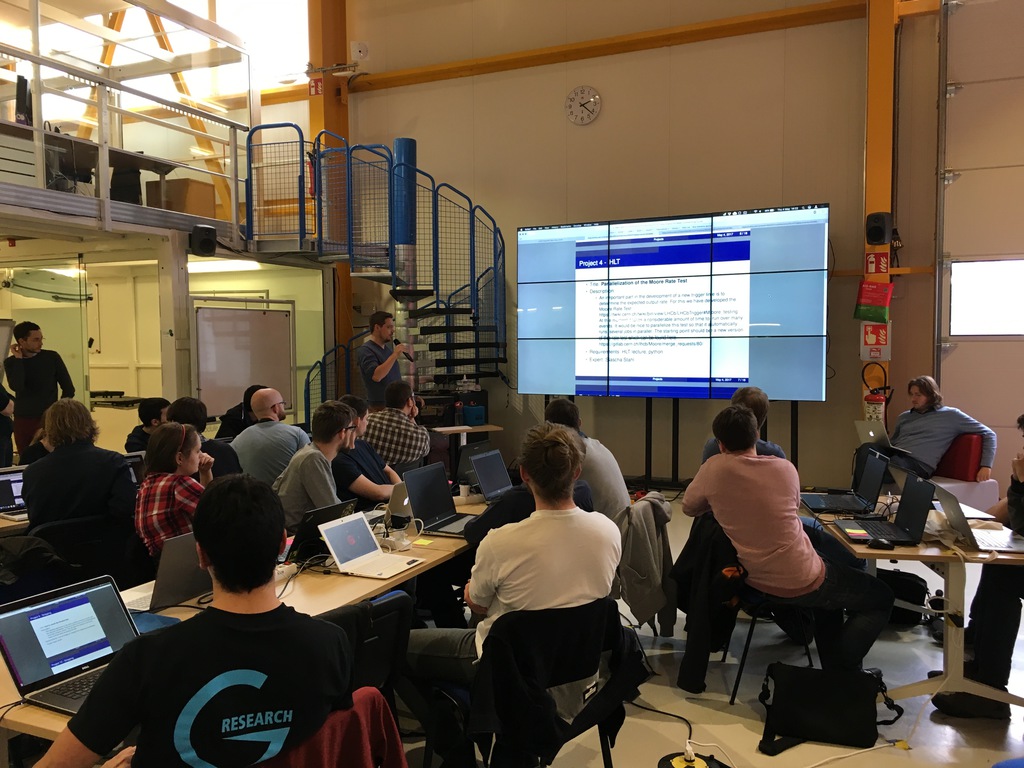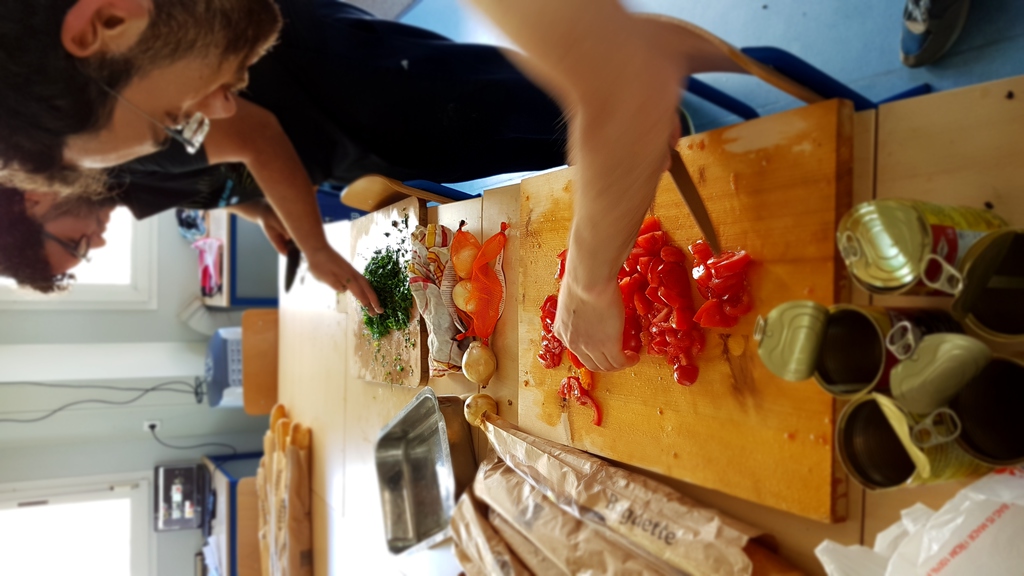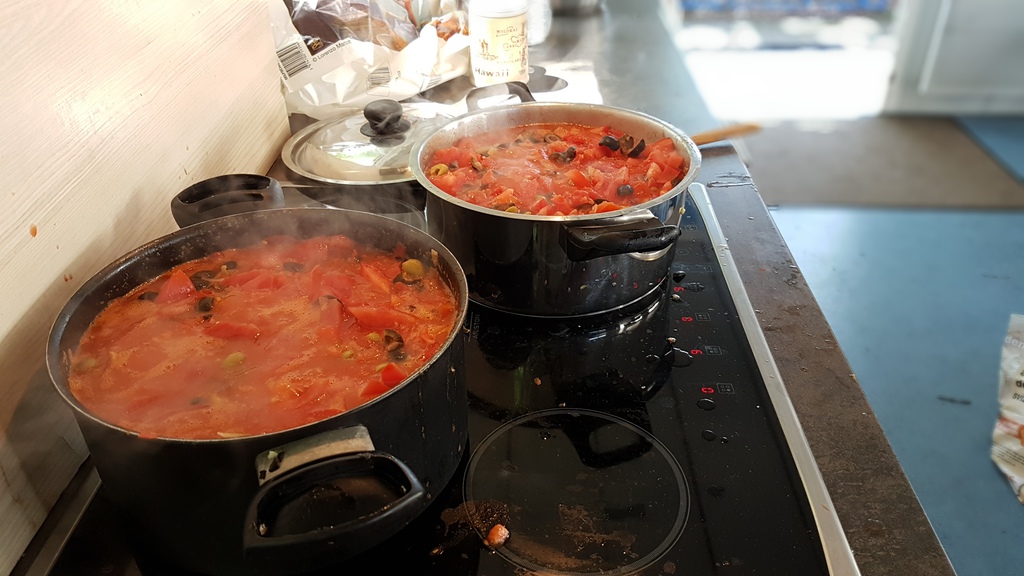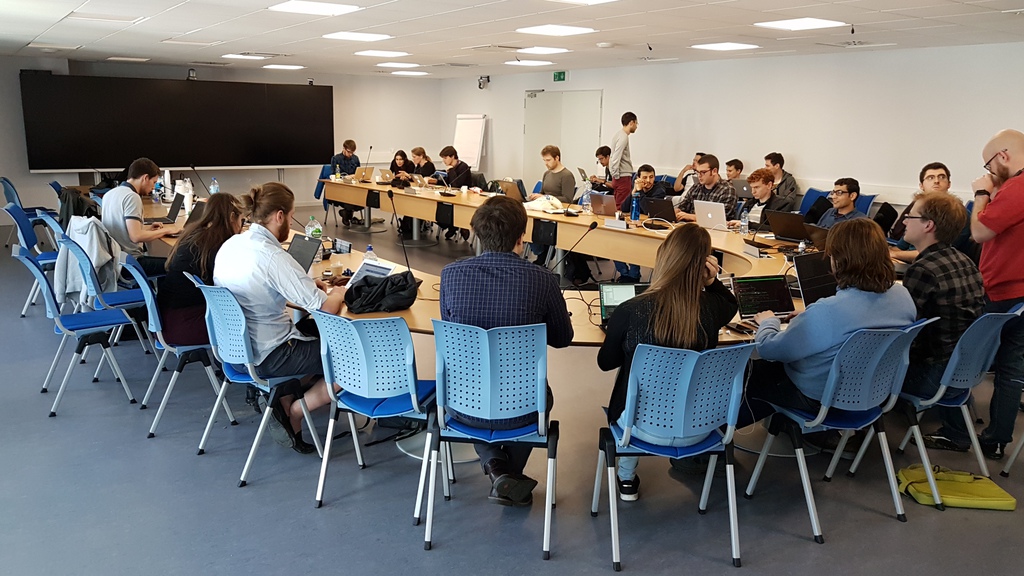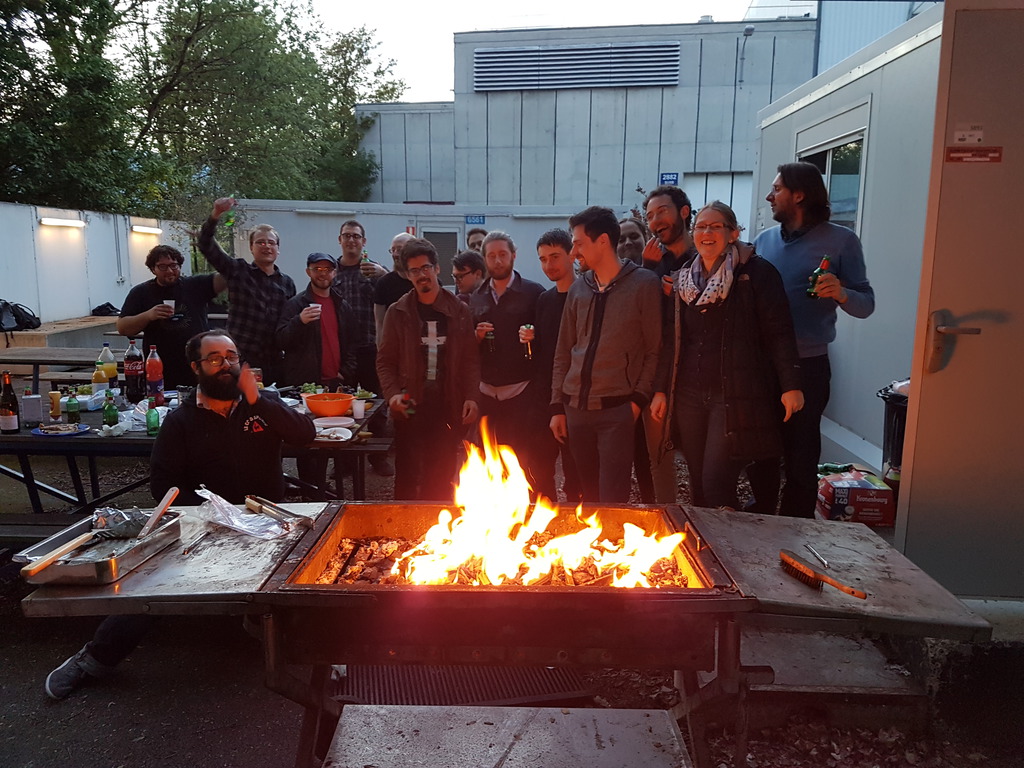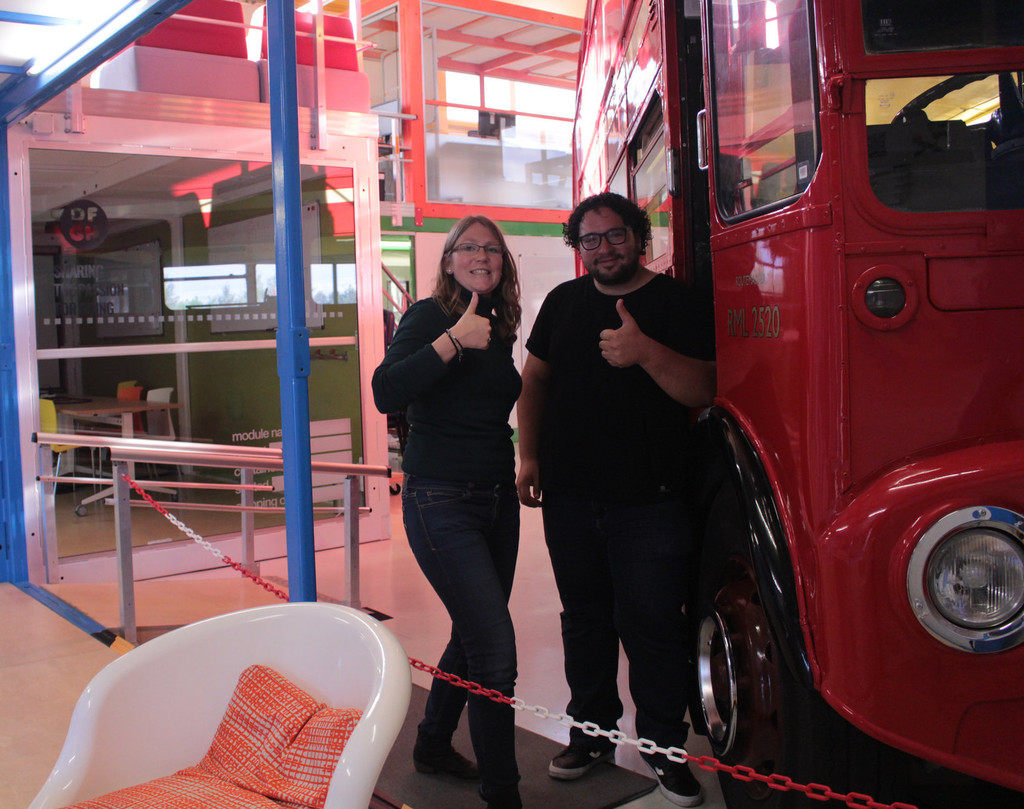Second Impactkit
The second LHCb Impactkit workshop was held at CERN from 3rd to 5th May 2017, with 19 participants from 13 institutions across 5 countries. The students were taught advanced DaVinci algorithms, Hlt TisTos and Turbo, how to write a DecFile, how to manage data on the grid with Ganga and how to develop LHCb software using LHCb git. It was an intense couple of days which ended in a 1.5 days long hackathon, where the students, divided in groups of 2, had to work on projects regarding mainly collaboration-wide issues, such as implementing a loose filter for generic samples or converting a stripping lin to a trigger line, or on other personal projects in line with the subjects of the lectures, like writing a new stripping line or DecFile.
The last day of workshop, completely dedicated to the hackathon, took place at the pit, where we also had a chance to eat lunch together and to have a nice barbecue at the end of the day, which also marked the end of the workshop - in the best way possible!
Here are some photos taken during the workshop:
The Starterkit team would like to thank all the students for attending. Our passion for teaching would serve no purpose without your will to learn.
Feedback
The general feedback has been positive. The lectures were found to be not too hard neither too easy, mostly clear and definitely useful for the future. Everybody appreciated the hands-on structure of most lectures and having a first look into new software or new algorithms. Some of the answers to the question “Which parts of the Impactkit did you like the most?” are:
the lectures All the parts are great. The project as it allowed for effective teamwork and implementation of newly learnt techniques
Of course, there is no rose without a thorn, and the Impacktit is far from being perfect. We have a large margin for improvement, and the students feedback helped us shape it. The room for the first day and a half was too small, some lectures were too fast and too rushed, sometimes there was no time to write down and test the pieces of code. These are just some of the things we will have to improve for the next episode of this saga, and we surely will.
When asked “Which parts of the Impactkit do you think need to be improved?”, the students gave the following anwers, amongst others:
Some lectures need much more time to allow us to try out and debug the tricks taught. Timing, some of the content was rushed but only because there was so much to cover in a short time. Need for more consistent picture, e.g. dedicated lecture about how the typical analysis chain looks like and why we need all these tools, and which is the role of each of them.
We wish to thank again all the students, your feedback - especially the negative one - is extremely precious for us and will allow us not to make the same mistakes again.
The people
We wrote for the 2016 Starterkit:
The Starterkit isn’t about software, it’s about people. It’s students helping students, out of nothing but the drive to help others do well, and to stop the cycle of frustration when there’s no help available.
…and we still firmly believe in those words. Organising and managing an event like the Impactkit requires a lot of effort, and everyone in the Starterkit team was willing and happy to dedicate a significant fraction of their time to it. So, we wish to thank everybody who helped in the realisation of the workshop, starting from the amazing teachers and the project leaders (in order of appearance):
- Albert Puig Navarro
- Lorenzo Capriotti
- Lennaert Bel
- Sascha Stahl
- Alex Pearce
- Greg Ciezarek
- Dominik Müller
- Mark Whitehead
- Rosen Matev
- Lucia Grillo
- Bassem Khanji
- Alessio Piucci
- Iwan Smith
…and following with all the helpers, who proved that no problem is insurmountable and ensured all the lectures to be carried out in the smoothest way possible. Thank you very much to (in random order):
- Jennifer Zonneveld
- Violaine Bellee
- Vinicius Franco Lima
- Victor Renaudin
- Elena Graverini
- Christoph Hasse
- Benedetto Siddi
- Luca Pescatore
and again to all the teachers that helped along.
A big thank you also to Barbara Storaci, Stefanie Reichert and Sebastian Neubert, who provided some of the projects proposed for the hackathon. Thanks guys!
The last day of the Impactkit, fully dedicated to the hackathon, was entirely spent at the pit, where we had lunch together, with an amazing pasta alla puttanesca, and finished with a massive BBQ. The Impactkit is not only coding and learning but also creating a network of reciprocal trust and friendship, and there is no better way to do it than over food and drinks. A special thank you goes to the organisers, cooks, choppers, grillers of both social meals: Alessio Piucci, Jennifer Zonneveld, Albert Puig Navarro, Benedetto Siddi, Elena Graverini, Lorenzo Capriotti and Svende Braun. Thank you guys for the amazing atmosphere you managed to create!
We wish to thank also everybody who contributed to the update of the repository after the last Impactkit and everybody who helped shape the lectures. Most of the people involved have already been mentioned as teachers or helpers, so this will be a short list:
- Carla Marin Benito
- Chris Burr
- Conor Fitzpatrick
Thanks guys for your concrete help!
And, whoever is reading this: remember that there is always something to do, so please come help us!
One last, but not least, thank you goes the organisers of the 2017 Impactkit (in alphabetical order):
- Svende Braun
- Lorenzo Capriotti
Svende and Lorenzo started organising the workshop several months before, trying to find volunteers for teaching and helping, booking rooms, managing the budget, buying coffee and biscuits, and setting up all the logistic aspects before and during the workshop. Thank you both for your dedication and for the great job!
Wrap up
Organising and realising the Impactkit required a lot of work, but it was very well paid off in the end. We hope everybody enjoyed it as much as we did, and that everyone managed to learn as much as possible (teachers and helpers included!).
See you next year!
The LHCb Starterkit team
